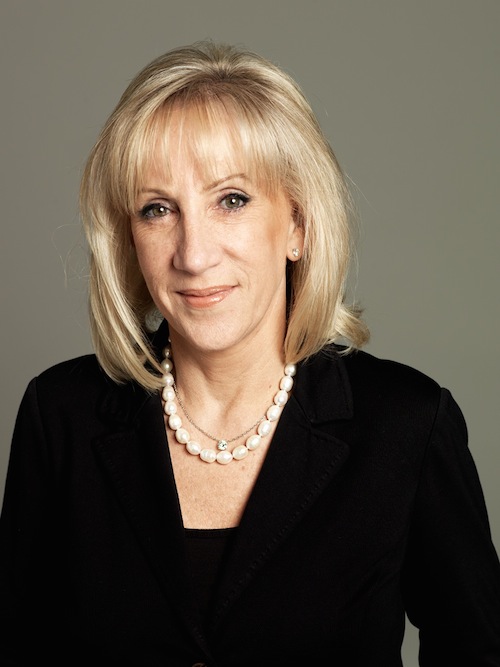In Killing Fairfax, award winning investigative reporter Pamela Williams presents a thrilling behind the scenes account of the decline of the hallowed Australian media company, Fairfax, as it fails to adjust to the new digital age. Williams uncovers a complicated web with the new start-ups funded by two traditional media tycoons, James Packer and Lachlan Murdoch, looking to expand their own online businesses. It picked up the prestigious 2013 Walkley Book Award.
As a standout investigative journalist, what do you do to get behind closed doors?
To get behind closed doors, the most important thing for an investigative journalist is a mix of patience, tenacity and trying to always think outside the box. Treating people with respect also helps a great deal, and you have to keep them confidential. Almost always you don’t get what you are looking for on the first fly-over. Sometimes not even the tenth fly-over. I often will go back to source or a potential source half a dozen or a dozen times. And the more you are willing to check and re-check information with people, the more they will trust you. By this way they won’t feel as though you got what you wanted and then vanished. People will usually tell you far more on subsequent calls or visits than they will in the first instance. And if someone does not want to talk to you, it can help if you wait awhile and then ask again, and perhaps rethink the way you asked for information.
What is the most dangerous situation that you have ever placed yourself in while conducting an investigation?
Danger can mean a number of things. Sometimes it can mean physical danger. But there is also the danger of what happens if you don’t get it right and don’t make every effort to get it right with a story. It’s perhaps the most important thing of all.
On the other ‘danger’ front, about 15 years ago I spent almost a year covering a battle between Australia’s dockworkers’ trade union, the federal government and a businessman trying to break the power of that trade union on the docks. The story did take me into very nerve-wracking territory as it was laced with mercenaries who were ex-military and who were determined to operate in secrecy. Tracking down and interviewing these people who were extremely edgy – in a dispute where a great deal was on the brink to be won or lost – definitely had me anxious for safety. Some of them reverse-tracked me down – seeking to come to my home for interviews, and I always felt deeply intimidated by this – whether it was intended or not.
What makes a good investigative journalist?
I do think a good investigative journalist has to be in equal parts a natural-born sticky-beak, patient, relentlessly obsessive and a story-teller. Maybe that should be four parts patience. Plus it’s important to be a strategic thinker. With investigations, going about elements of the research in the wrong order without thinking of how the connective elements work, can really blow a story. If you make phone calls to people in the wrong order, everything can be easily lost. You have to design a structure in your head as to who might tell someone else that you are digging. And if that person is likely to tip off another person before you have worked out pieces of the puzzle, and the substance of the story, it can be a real problem. Investigative work depends very much on building blocks. And paper trails. There is simply nothing like a good paper trail.
Is it getting harder for investigative journalists to find staff writer jobs?
I am not sure how the evidence sits on this question. Speaking for myself I have been fortunate enough to have a staff writer job for many decades. I have just taken a year off to do another book and I am optimistic (perhaps deluded) about getting another job after the year is up. There have been lay-offs right across our industry, right across the world. I think a lot of investigative people have begun deploying their skills in journalism on different platforms and through different modes of delivery. I think long-form journalism has a very healthy future and there are still many publications – both digital and in print which provide a home. I guess the next few years will reveal whether the new type of owner – a la Jeff Bezos with The Washington Post, and the new type of publication – a la ProPublica – puts a floor under the media and thus, journalists’ jobs.
What do you think the future is for traditional media?
Obviously printed publications with their very high cost base of paper, ink, trucks and printing presses (before you get to the journalism) are under threat. The combination of online readership habits and the collapse of newspaper classified advertising have critically damaged the old model. This was hyper-charged by the financial crisis which literally put a buzz-saw through big subscriptions.
Therefore, traditional media is trying to find its foothold on the way down the mountain. The descent was initially very fast but it has slowed a little now. Much was lost that can’t be retrieved. I think the big companies will survive but they have to have strong sources of revenue that indisputably can pay the salaries of journalists. If you don’t have journalists, you don’t have reporting.
Personally, I am optimistic that human beings will always want reporting. Going back to the days in the cave when people made marks on rock walls to convey information, through to someone on horseback riding in with the news, and then to the start of printing with fliers handed out or nailed to a tree trunk, and then on to the newspaper as we know it, and now the internet too, there has not been a time when human beings have not been hungry for information about the world they live in – whether that world is simply a small isolated community – or whether it’s the global community we have today. So I guess I think that traditional media will transmogrify. It won’t vanish, it will recreate itself with a new mode of delivery. I expect that within a couple of years we might have perhaps an iPad-type tablet that is as thin as a piece of paper, maybe A4 size and which can be folded right up and put in your pocket like a sheet of paper, and which will be totally wireless and which you can tap to download what today you might call a newspaper. We are nearly there already. And thus we might be back where we started. Reading the paper and folding it up to put in our pocket or a handbag. And then tapping to refresh the news later as we operate in our 24/7 news environment. If someone customised such a product for a neighbourhood or a city, and the ads downloaded as well, you might see a resurgent model for the monetization of newspaper journalism again. The question is whether people will want to customise their reading habits and I think we see already from all of the aggregation sites, that they do. In my opinion people will eventually be so overwhelmed by the avalanche of information that floods in through the internet now, that good branding and reliable sources of information will regain their cachet.
The question would be: does this improve the digital subscription levels of existing media organisations. I think the mobile phone is too hard to read for people with older eyes. You can only read a long piece in The New Yorker on a mobile phone up to a certain age. But the explosion in sales of tablets has shown that the appetite for information is growing not shrinking. So I think the strongest brand names in traditional media will be able to ride the wave.
Will big media continue to dominate in Australia? Or will start-ups turn the tide?
I am probably going to sound out-dated here, but I do think big media will remain in the box seat for a long time. The Guardian has been a start-up in Australia and it has been very successful. But you really can’t call it a start-up. It’s a hugAnchore international brand and it has leveraged that brand, together with several years of powerful investigative reporting coming out of England, to cement its position well beyond British shores in the digital age. So there you have a company that is both big media and a start-up. The price of entry for media companies is very high if you are talking about quality journalism.
I suspect we may see a shake-out of the Australian media industry in the next couple of years. The strongest, the best-resourced and the best prepared will have the best chance of riding through this current industrial revolution. Everyone is hedging their bets and watching their back. If you look at the global new-media giants like Facebook and Yahoo, they are now paying billions of dollars for even newer media companies that they see snapping at their heels. We have to wait to see what it all looks like when we get to the other side.






















0 User Comments